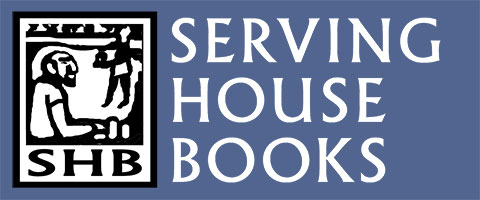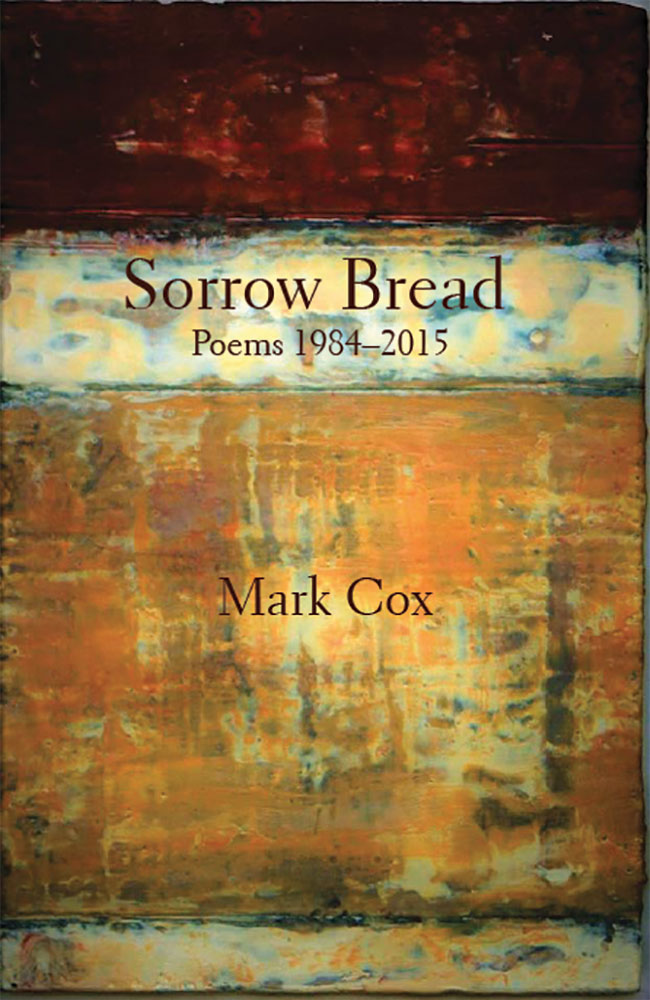Publishers of international
prose, poetry, art,
and literary hybrids.
Book
Sorrow Bread
In this collection, poems selected from a distinguished thirty-year career converse with each other across books and across time. Soulful, artful and yet accessible, these poems explore essential connections–one’s relationship to poetic tradition, the reader, the natural world, other lives, language itself. Cox renews strategies that have served poets across centuries and international borders: voice, rhythm, image, vision, myth, humor, shrewd architectonics whether “free” or not, a willingness to bring the reader decisively into the transaction. The poems often generate dense, shifting constellations of metaphor, and Cox’s voice carries a dreamlike power, yet he stays close to daily existence, mines it, giving especially clairvoyant attention to the difficult, beautiful life of families and the challenges of our mortality. In doing so, he reminds us of what’s important, of the emotional and psychological inscapes that sustain us.
Author: Mark Cox
Paperback : 178 pages
ISBN-10 : 099777973X
ISBN-13 : 978-0997779738
About the Author
Mark Cox has previously published four volumes of poetry: Barbells of the Gods (Ampersand Press), Smoulder (David R. Godine), Thirty-Seven Years from the Stone, and Natural Causes (both in the Pitt Poetry Series). Readiness, a new book of prose poems, is slated for publication in 2018. Cox has a 30-year publication history in prominent magazines and has received a Whiting Writers Award, a Pushcart Prize, and numerous fellowships for that work. He teaches in the Department of Creative Writing at University of North Carolina Wilmington and in the Vermont College MFA Program.
Cox essays a huge terrain of subject and feeling, from layered fury to astringent violence to lamentation, from guarded hopefulness to quiet, intensely stirring affirmation. A lesser poet might see all this fly apart; Cox establishes supple coherence through richly consistent artistic command and scrupulous honesty of vision and voice. Tony Hoagland has said Mark Cox is “a veteran of the deep water; there’s no one like him,” and Thomas Lux identified him as “one of the finest poets of his generation.” No one speaks more effectively of the vital and enduring syntaxes of common, even communal, life.
—Richard Simpson
In Sorrow Bread, Mark Cox is subtle—but never so much as to turn obscure; he is outspoken—but never so much as to turn didactic. His keen intellect shines all through the volume; but more important by my lights is the great heart that nourishes its every poem. Though nothing here feels redundant, the collection’s well-advised mixing of old with new in almost every section reveals the poet’s longstanding preoccupations: memory, relation, emotional thirst, and not least the importance of modesty and gratitude: “the comfort, finally,” as Cox says in a late entry, “of tenderness and humility and weakness.”
—Sydney Lea
In “How to Live, What to Do,” a Wallace Stevens poem that poses questions but omits the question marks, he almost gives in to the despair his title suggests. The poem seems impersonally personal. In reading Mark Cox’s finely rendered Sorrow Bread, I was struck how often the poems live up, unambiguously, even relentlessly, to its title. They offer us sorrow and regret, and as in the title poem, pose a central question, “What do you do when there’s nothing you can do, but/you can’t do nothing?” The book is a Selected & New, and spans some thirty years of musings on that question, its music dirge-like, the question mark at its end suggesting that great questions might be seriously unanswerable.
—Stephen Dunn
"I admire [Serving House Books] for the quality work they’re putting out plus the notable writers they’re publishing."
Jack Smith, The Writer Magazine

